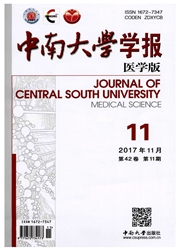

 中文摘要:
中文摘要:
目的:调查矿难后2个月及10个月创伤后应激障碍(posttraumatic stress disorder,PTSD)的发生率及相关因素。方法:采用创伤后应激障碍清单(PTSD Checklist-Civilian Version,PCL-C)调查104名矿难幸存者PTSD的发生率。选取48名幸存者(包括24名重性PTSD患者及24名非PTSD对照)进行详细症状、心理评估。结果:矿难后2个月,PTSD的发生率为50%。重性PTSD患者和非PTSD对照在PTSD症状分析、焦虑抑郁、个性及记忆功能方面有显著差别。逐步回归分析显示状态焦虑、矿难后恢复上班情况、Beck抑郁问卷(BDI)总分、神经质、矿难发生时所在位置、井下工龄进入回归方程。矿难后10个月,符合PTSD诊断标准的占30.6%;与矿难后2个月相比,PTSD患者在PTSD症状、焦虑症状及短时记忆方面有明显改善,抑郁症状无显著差别;逐步回归分析显示,状态焦虑改善、矿难后恢复上班情况、积极应对、情感平衡、井下工龄是PTSD症状减轻的因素。结论:矿难后PTSD的发病率高、症状严重,对幸存矿工的心理影响很大,需要及时干预与治疗。状态焦虑、矿难后恢复上班晚、抑郁、神经质、矿难发生时所在位置危险度高、井下工龄短是PTSD发生的危险因素。积极应对是PTSD恢复的积极因素之一。
 英文摘要:
英文摘要:
Objective To investigate the prevalence of posttraumatic stress disorder (PTSD) among survivors from a coal mining accident after 2 and 10 months and factors related to PTSD. Methods To estimate the prevalence of PTSD, 104 miners were surveyed through the PTSD Checklist-Civilian Version ( PCL-C ). Forty survivors including 24 severe PTSD patients and 24 non-PTSD subjects were evaluated thoroughly. Results The current prevalence rate among survivors from the coal mining accident at 2 months was 50 %. There were significant differences in PTSD symptoms, anxiety and depression, personality, and memory performance between the PTSD patients and non-PTSD controls. State anxiety, time to renew the work, depression, neuroticism, and the place they were staying, and length of service were predictors of PTSD. After 10 months of the accident, 30.6% survivors still met the criterion of PTSD. Compared with 2 months after the accident, PTSD symptoms, anxiety, and memory performance improved clearly, while the depressive symptoms had no significant difference. The state anxiety, time to renew the work, positive coping, emotional balance, and length of service were the factors of PTSD symptom healing. Conclusion The current prevalence of PTSD among survivors from coal mining accident is high. The mining accident has great influence on victims, and psychological or medication interventions are necessary. There are lots of risk factors for the prevalence of PTSD, such as state anxiety, depression, neuroticism, and shorter duration of service. Positive coping may be a beneficial factor for PTSD recovery.
 同期刊论文项目
同期刊论文项目
 同项目期刊论文
同项目期刊论文
 Insular cortex involvement in declarative memory deficits in patients with post-traumatic stress dis
Insular cortex involvement in declarative memory deficits in patients with post-traumatic stress dis Effects of serotonin depletion on the hippocampal GR/MR and BDNF expression during the stress adapta
Effects of serotonin depletion on the hippocampal GR/MR and BDNF expression during the stress adapta Brain responses to symptom provocation and trauma-related short-term memory recall in coal mining ac
Brain responses to symptom provocation and trauma-related short-term memory recall in coal mining ac Subsequently enhanced cpp to morphine following chronic but not acute footshock stress associated wi
Subsequently enhanced cpp to morphine following chronic but not acute footshock stress associated wi Lower levels of whole blood serotonin in obsessive-compulsive disorder and in schizophrenia with obs
Lower levels of whole blood serotonin in obsessive-compulsive disorder and in schizophrenia with obs 期刊信息
期刊信息
